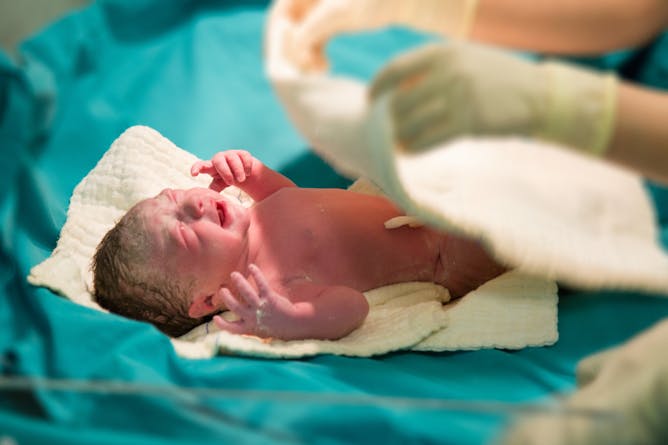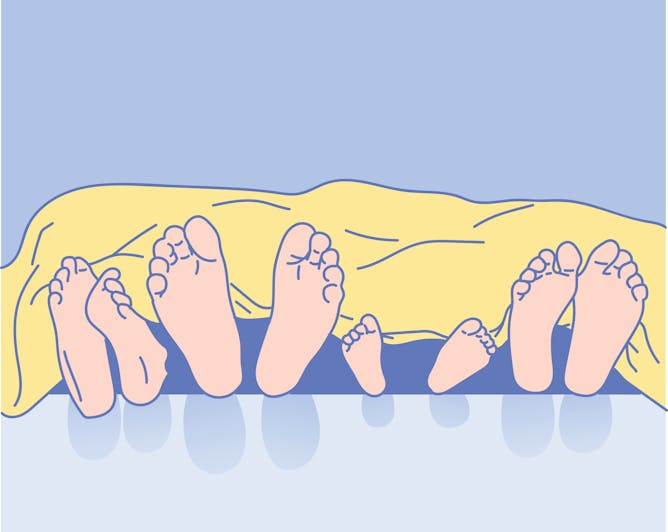|
For almost a century, scientists believed the womb was a sterile, isolated bubble that kept the developing fetus safe from microbes that might cause them harm.
But that all began to change several years ago when researchers found evidence of bacteria in the human womb and hypothesized that the baby’s microbiome – the collection of bacteria, viruses and fungi that live in and on the baby – actually gets going during pregnancy. This highly controversial finding just got more support from a recent series of papers. And now Kent Willis, a physician scientist who focuses on premature infants, reveals evidence of fungi living in wombs.
Also this week, we published stories about the bonkers history of beds, photo portraits of a 19th-century mother and daughter and how to donate wisely after a disaster.
|

New research suggests that a newborn is exposed to bacteria and fungi in the womb.
stockce/Shutterstock
Kent Willis, University of Tennessee
Fungi live in everyone's gut – but now a new study reveals that this colonization may begin before birth.
|

For centuries, people thought nothing of crowding family members or friends into the same bed.
miniwide/Shutterstock.com
Brian Fagan, University of California, Santa Barbara
Today's beds are thought of as bastions of privacy. But not long ago, they were the perches from which kings ruled and places where travelers hunkered down with complete strangers.
|

Detroit People’s Food Co-op, opening later this year in a food desert, is an example of a community-driven project.
DPFC
Catherine Brinkley, University of California, Davis
Prodded by Michelle Obama and other government leaders, Walmart and other major US retailers vowed to build hundreds of stores in food deserts. What happened?
|
|
-
Ilona Jaspers, University of North Carolina at Chapel Hill
As vaping-related illnesses increase and deaths reported, an inhalation toxicologist explains why comparing the dangers of vaping to the dangers from cigarettes doesn't make sense.
-
Kate Clarke Lemay, Smithsonian Institution; Martha S. Jones, Johns Hopkins University
A 19th-century volume contained a mystery for two historians who combined their knowledge to tell the story of the women and their contributions to American democracy.
-
David Campbell, Binghamton University, State University of New York
After a hurricane strikes or an earthquake makes shockwaves, try to support nonprofits that are clear about what they do and how they will spend your money.
|
|